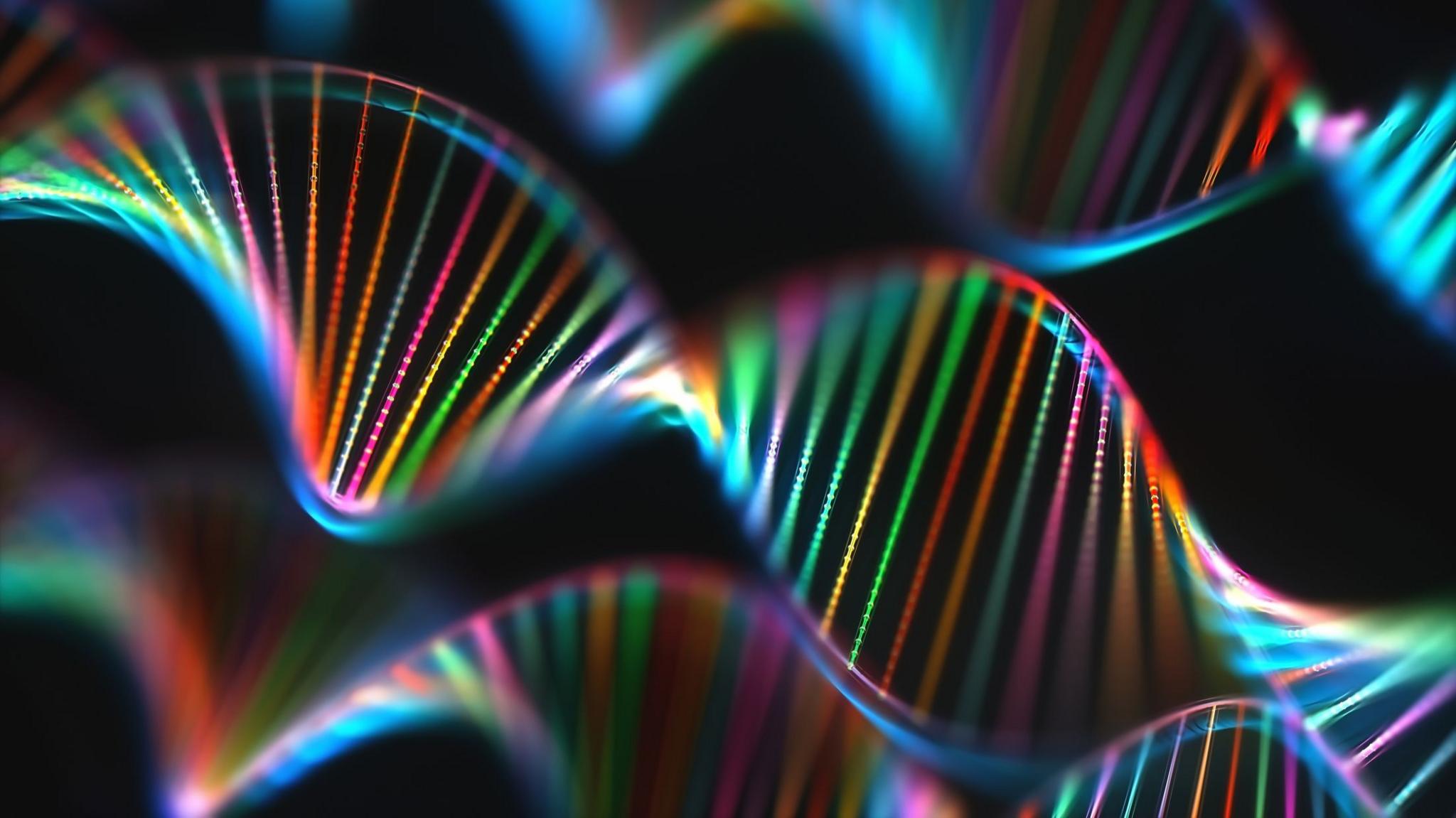DNA store has 'revolutionary' effect -scientists
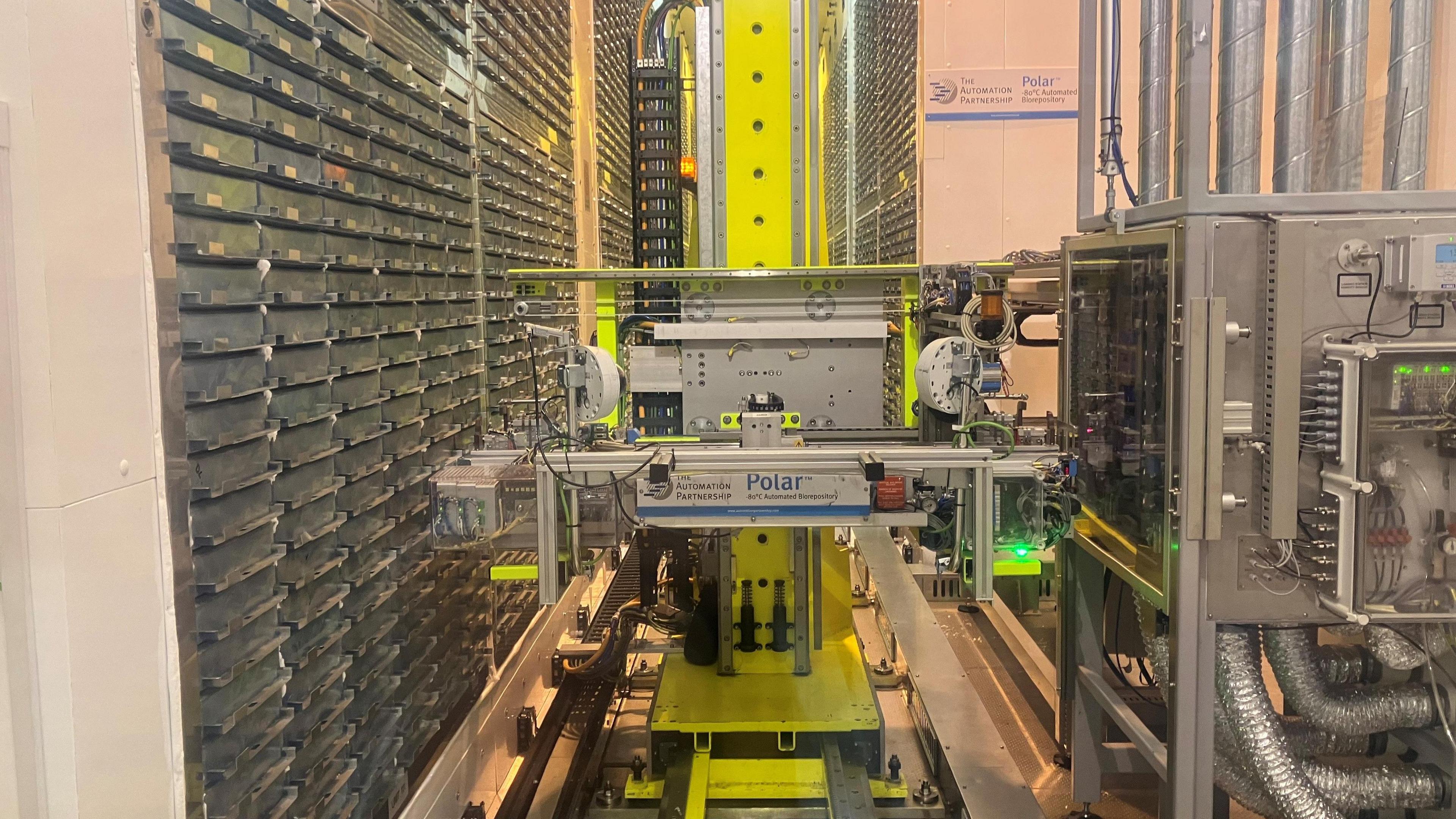
The UK Biobank freezer contains 10 million samples which are stored at -80C
- Published
A huge refrigerator that has stored samples from the bodies of more than half a million volunteers over the past decade has offered a “revolutionary” study of how humans age, scientists have said.
The UK Biobank was launched in Stockport in 2006 to create a vast database to aid medical research using DNA.
Samples of blood, urine and saliva are frozen in liquid nitrogen and then stored at temperatures of -80C (-112F).
Dr Nils Muhlert from the University of Manchester said the biobank was “a real thing to be proud of”.
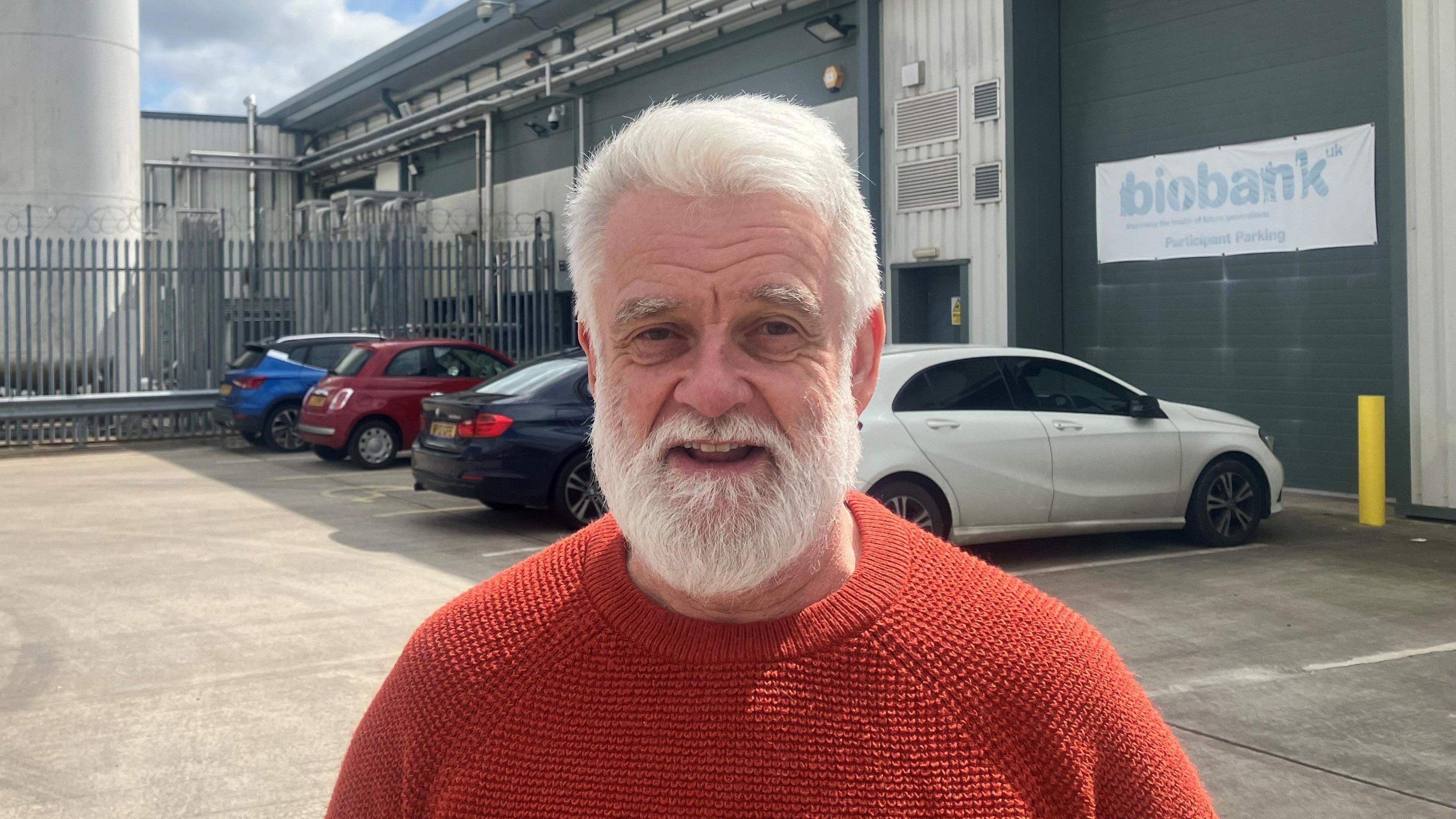
John from Heaton Moor in Stockport is one of the volunteers
The UK Biobank enrolled half a million adults to undergo medical checks, answer health and lifestyle questions and donate genetic samples, to be stored and studied for decades.
The imaging part of the project was started in 2014, and involves detailed scans of the brain, and the rest of the body.
It is hoped the research will lead to new treatments for diseases like cancer and multiple sclerosis.
One of those to volunteer, John from Heaton Moor, said it was “quite fascinating because you provide information which can lead to great medical advances".
He was first scanned 10 years ago and has returned to the laboratory a decade later for more tests to allow scientists to compare his medical data across time.
"They scanned my knees and my hips to look at my bone density," he said.
"I'm also wearing a heart monitor for 15 days which is stuck to my chest.
"As I move around in my day-to-day life it will monitor how my heart behaves."
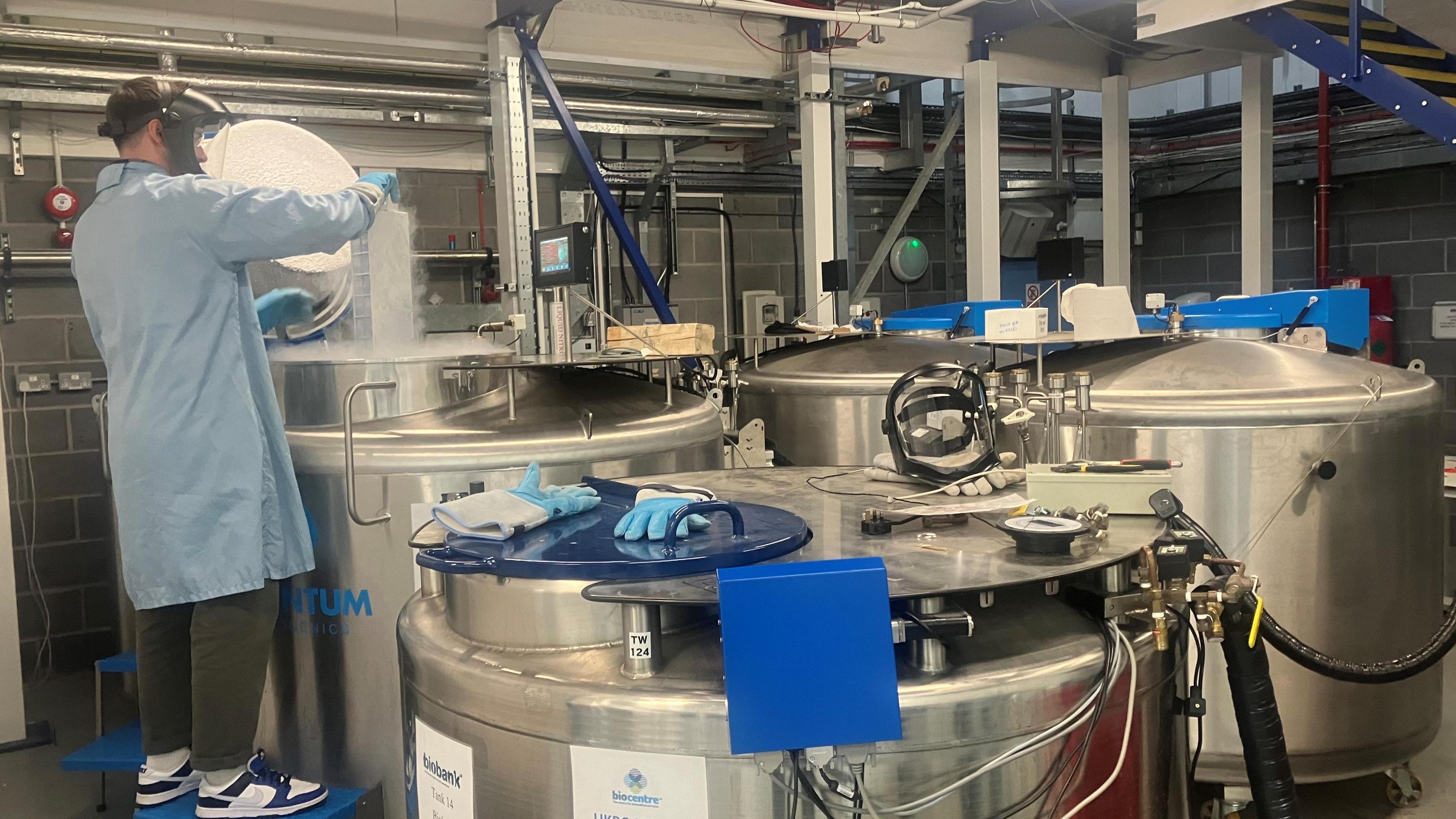
Liquid nitrogen is used to freeze the medical samples
The vast scale of the UK Biobank means it is delivering vital insights into how we age.
It now contains 10 million samples from 500,000 patients.
Nearly one in 10 volunteers have already died over that time but that adds to the wealth of information contained in the laboratory.
The UK Biobank data is getting more valuable with each year that passes because the volunteers are getting older.
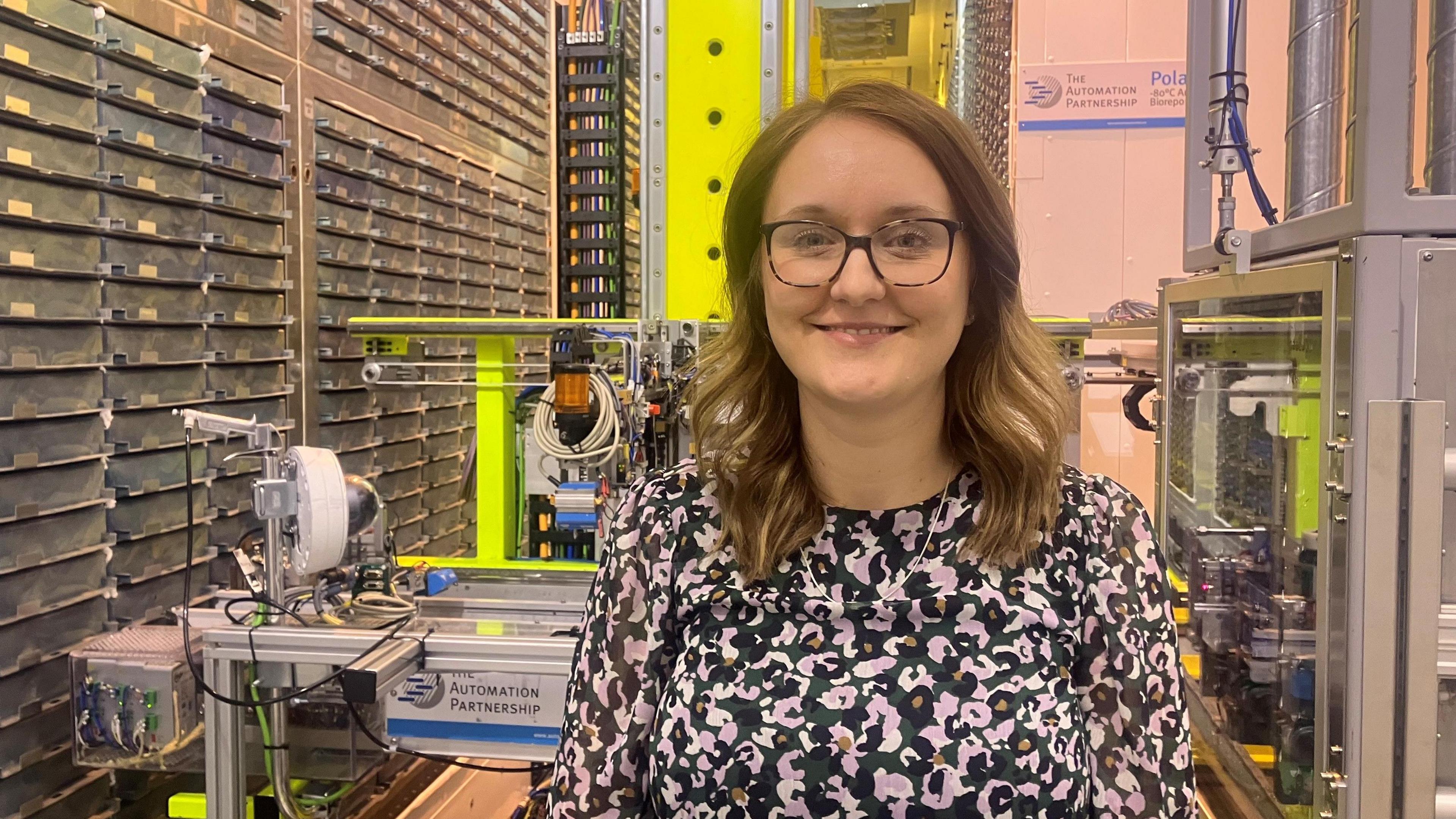
Sam Welsh is the Head of Laboratory at UK Biobank
UK Biobank's head of laboratory Sam Welsh said: "Blood, urine and saliva are stored here, which are used for protein or DNA measurements.
"We do it very carefully so that scientists can trust the data that we generate from these samples."
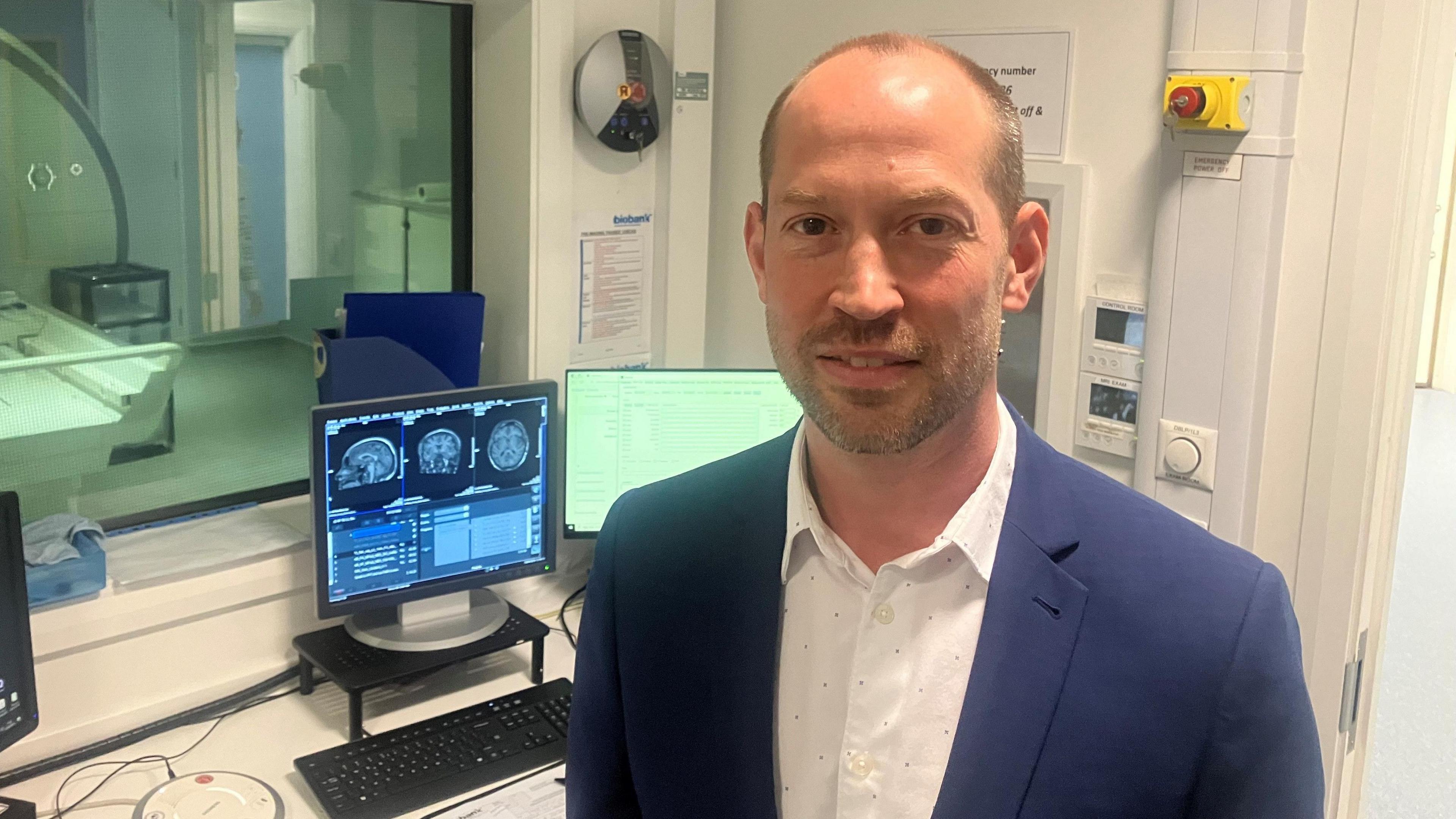
Dr Nils Muhlert researches how the brain responds to getting older
More than 30,000 scientists from 90 countries are exploring the genetic information, which is stored anonymously at the UK Biobank.
Dr Muhlert uses the data to research how the brain responds to getting older.
"The UK Biobank has had a revolutionary effect on many aspects of science," he said.
"When I go to scientific conferences now in Mexico or Taiwan, I tell people I'm from Manchester and they say that's the home of the UK Biobank.
"It's a real thing to be proud of."
In the next few years, the UK Biobank will move from its existing site to a new location close to the University of Manchester.
Related stories
- Published18 May 2023
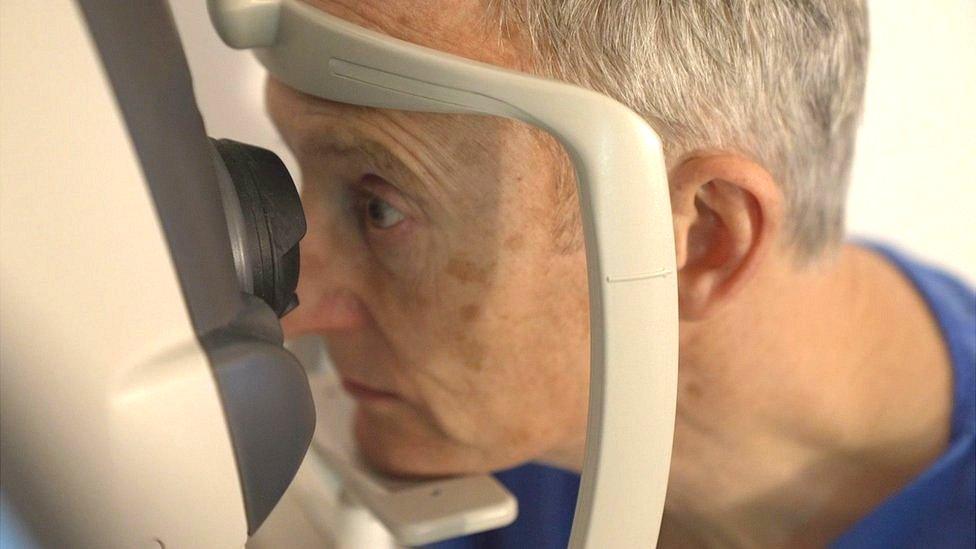
- Published14 April 2020
